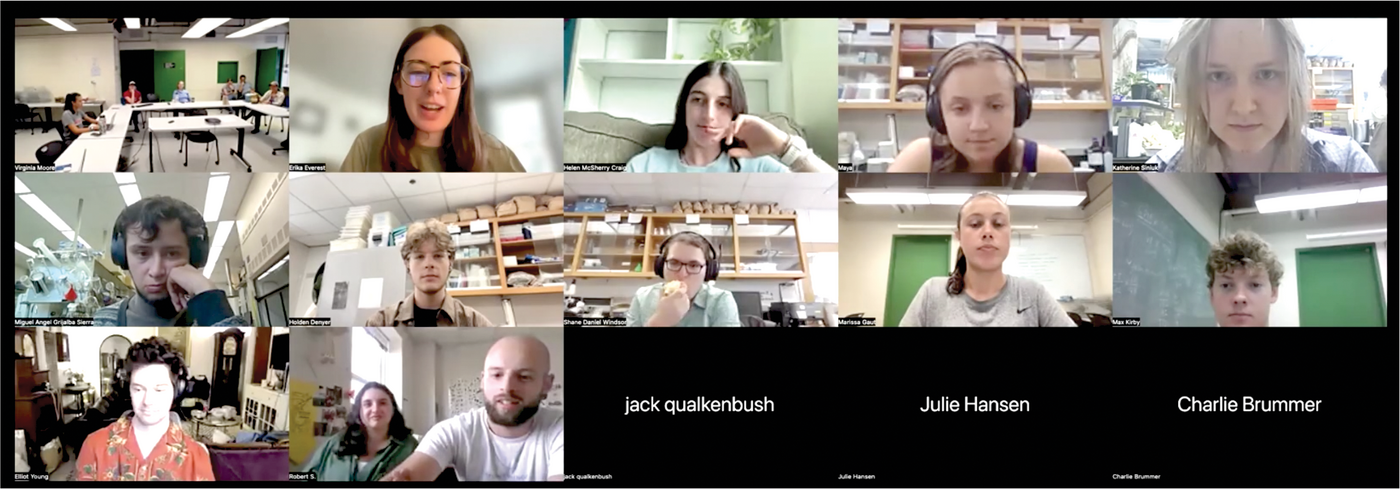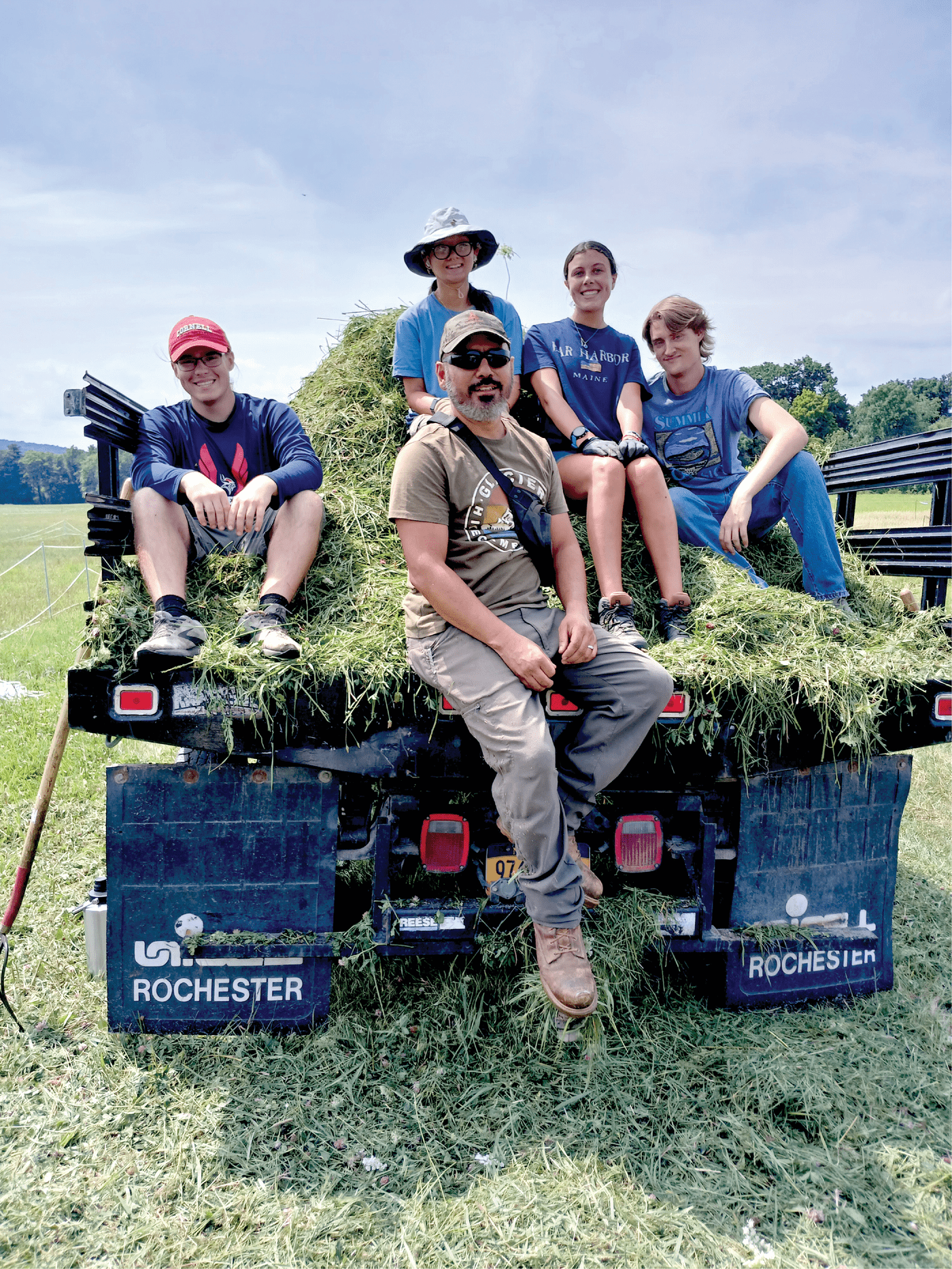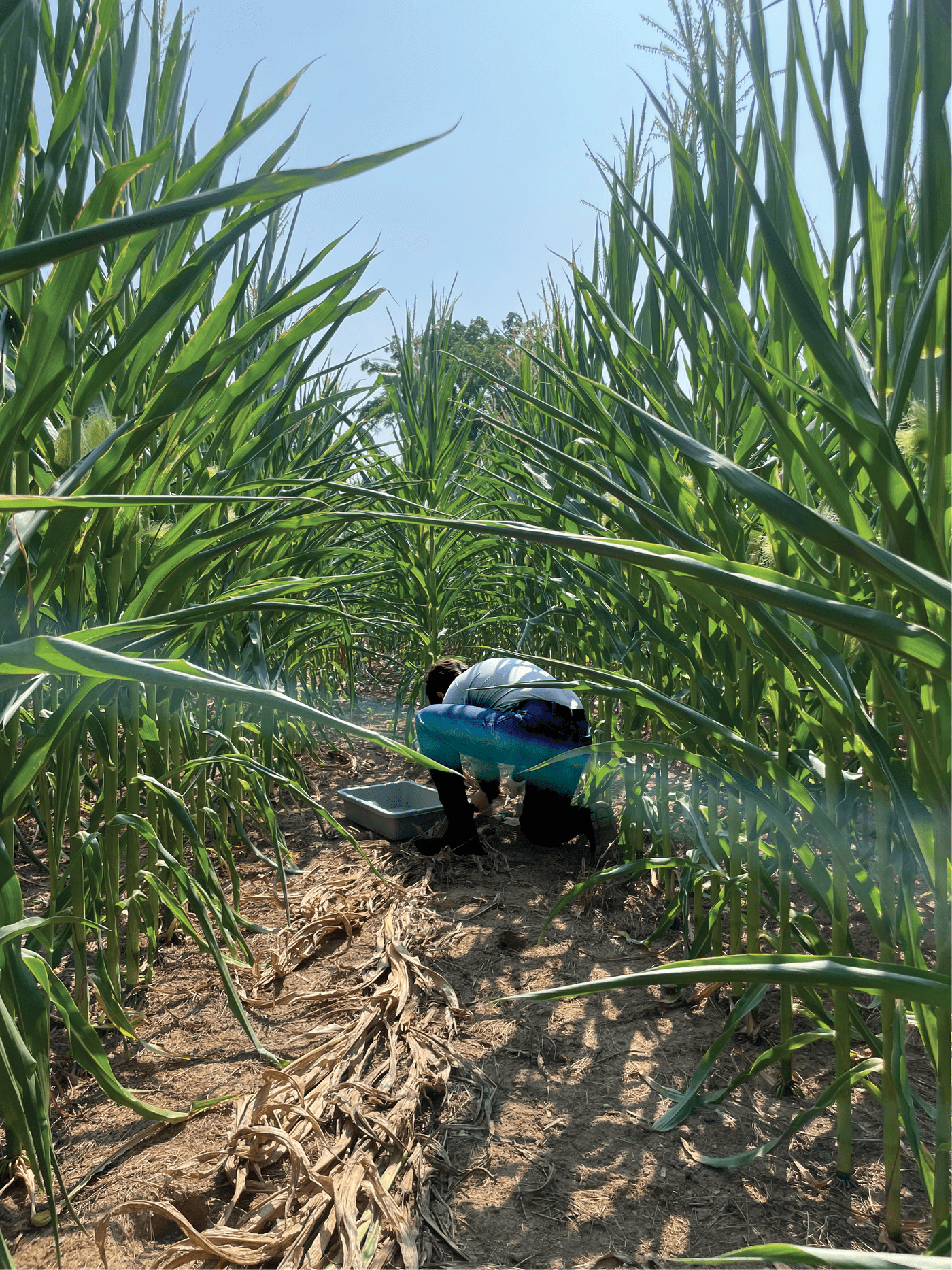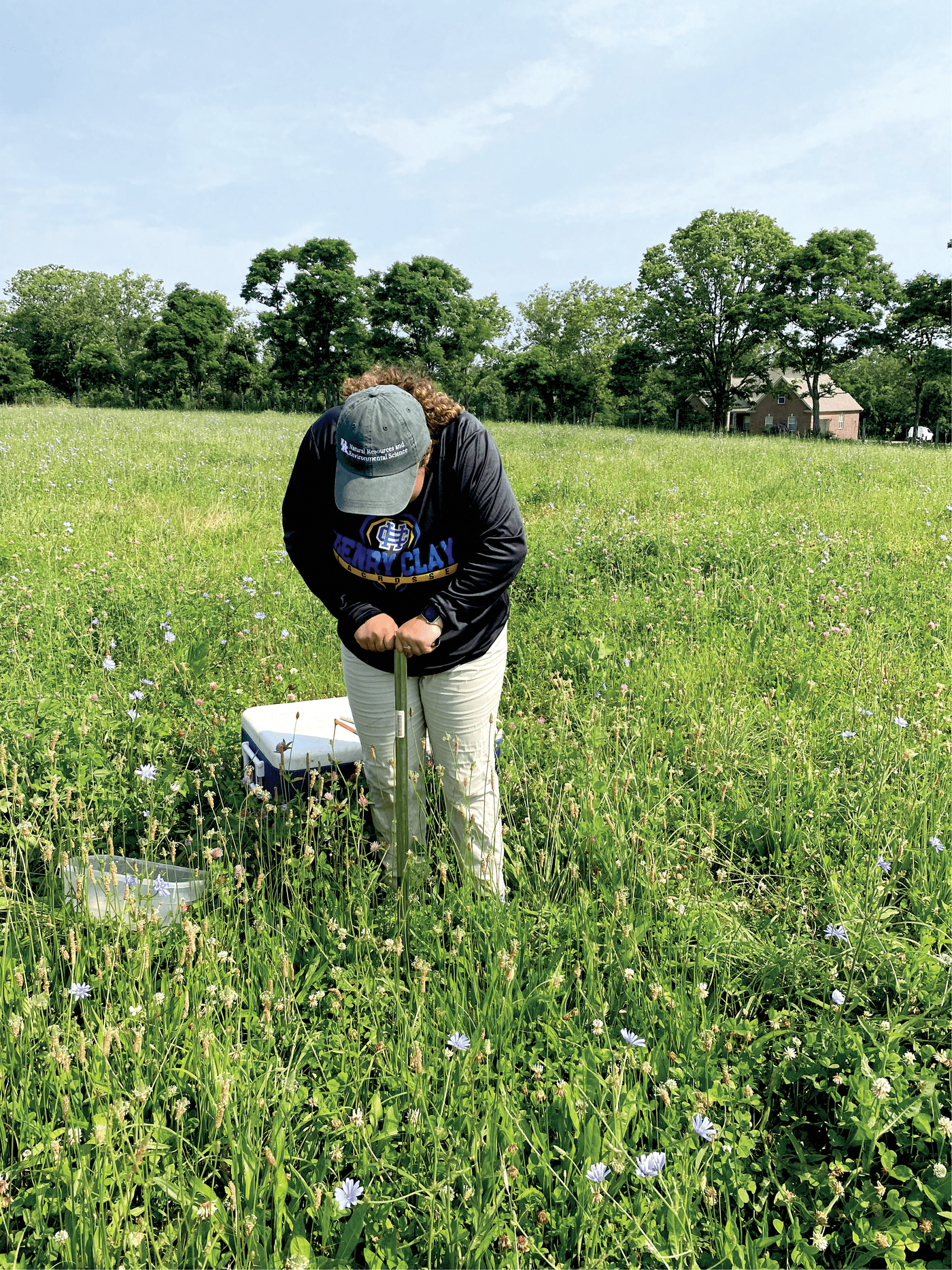Reflections on Transdisciplinary Research from an Undergraduate Internship Program

What do undergraduate students working in forage agronomy, plant breeding, entomology, extension, and agricultural policy research across the country have in common? During the summers of 2023 and 2024, students in these areas interned for researchers collaborating in the Resilience Coordinated Agriculture Project (RCAP; see ag‐resilience.org). Funded by the USDA Agriculture and Food Research Initiative’s Sustainable Agricultural Systems (SAS) program area, RCAP focuses on improving resilience of agricultural systems by (1) discovering adaptive strategies to protect farmers from climate change and market shocks and (2) encouraging resilience through adoption of diverse, perennial, circular agricultural systems. As these students assisted with alfalfa variety trial sampling, collected insects on sticky traps in cornfields and around farm ponds, investigated no‐till and cover cropping agroecosystems, and created extension fact sheets to share at field days, they integrated their experiential learning into the wider context of the transdisciplinary research community that constitutes RCAP.
The vision for RCAP began during the height of the COVID‐19 pandemic in 2020. A passion project pioneered by Dr. Valentin Picasso, an Associate Professor in Plant and Agroecosystem Sciences at the University of Wisconsin–Madison whose research focuses on developing sustainable forage and perennial grain systems to build resilience to climate change, RCAP brings together researchers from multiple disciplines. The long‐term goal of this project is to inspire new federal and state policies that incentivize diverse, perennial, circular agroecosystems to support growers and increase the land area devoted to these systems across the country. Ultimately, the objective of the RCAP is to build a more sustainable and resilient agricultural system in the United States. To accomplish these larger goals, the assembled transdisciplinary team of natural and social scientists are currently working alongside stakeholders to (1) identify dominant and appropriate diverse, perennial, circular systems in major agroecoregions; (2) assess resilience and quantify provisioning, regulating, and supporting ecosystem services of current and diverse, perennial, circular systems; and (3) evaluate the economic and social value of ecosystem services in these systems.

Transdisciplinary Approaches to Grand Challenges in Agriculture
Undergrad and graduate students are engaged in RCAP research activities in collaborating labs across the U.S. But through their fieldwork, lab work, and data analysis, they only see a narrow slice of the broader project. While there is plenty for students to learn during a 10‐week internship in their respective roles, as emerging researchers they can benefit from exposure to a wider view of the RCAP’s transdisciplinary approaches to solving grand challenges in agriculture. The challenges of transdisciplinary research are not limited to developing an equitable and collaborative environment among a diverse group of researchers who bring to the table diverse sets of definitions and methodologies from a wide range of spheres. Often, it is difficult to communicate the real‐world implications of transdisciplinary research efforts to students, other researchers, and practitioners alike (Lawrence et al., 2022). In our role as educators, RCAP collaborators wanted to provide opportunities for undergraduate research assistants to learn about other components of RCAP outside of their own laboratory environments as well as the value of communicating their work to a broad scientific audience.
During the spring of 2023, Dr. William (Bill) Lamp, an entomologist at the University of Maryland, along with Dr. Virginia (Ginny) Moore, a forage and cover crop breeder at Cornell University, organized RCAP collaborators to develop an undergraduate student internship and virtual forum. Participating RCAP collaborators recruited undergraduate interns to work in their research groups over the summer. The internships involved a wide range of hands‐on research experiences and independent projects mentored by graduate students, staff, and faculty in the participating labs. The virtual undergraduate forum was designed to provide interns with the opportunity to connect with the wider community of researchers involved with RCAP across the country, understand the broader project goals, and develop transdisciplinary scientific communication skills.
Drs. Moore and Lamp along with Erika Everest, a graduate student in Dr. Moore’s lab, launched a bi‐weekly online seminar series for undergraduate interns, beginning in the summer of 2023 and continuing in the summer of 2024. The seminar series included a variety of research presentations, professional development workshops, and networking opportunities for interns, including an introduction to the RCAP research goals by Dr. Picasso, graduate student lightning talks, workshops on science communication, and graduate school Q&A sessions. Both summers, the forum culminated in an online research symposium in which students gave short presentations about their own research projects and reflected on their experiences in the program. There were a total of 23 participants across the two years (12 in 2023 and 11 in 2024).

Hands‐On Experience, Growth, and Connections
At the end of the program each summer, students completed a survey, sharing their feedback on the program and identifying the most valuable aspects of the internship. They shared that the highlight of their experiences was gaining hands‐on research experience, including designing and completing an independent project. Students’ academic, professional, and personal growth throughout the course of the internship was evident in their symposium presentations. All survey respondents indicated that they grew in their abilities as researchers, better understood sustainability in the context of agricultural systems, and learned from their peers and mentors during the RCAP internship program in both 2023 and 2024. Furthermore, students reported cultivating a deeper appreciation for the complexity of diverse, perennial, circular agroecosystems and the importance of a transdisciplinary research community in making scientific and social progress toward more sustainable agricultural systems.

During the planning and administration of the internship, several challenges arose, including scheduling meetings across time zones, accommodating fieldwork schedules between multiple disciplines, and designing workshops that catered to a diverse set of student projects and interests. Despite these challenges, students emphasized the value of the connections that they made with other interns and graduate students across universities; they were able to encourage one another in their respective research efforts and reported feeling less alone in their individual challenges after spending time in breakout sessions with other students.
The challenges of transdisciplinary research, designed to tackle complex problems such as sustainability in agricultural systems, remain. Although it is yet another logistical challenge to prioritize connection and dialogue between transdisciplinary research teams, students’ experiences in the RCAP internship program and forum are evidence that it is worth the effort to foster these relationships, which offer us encouragement in our struggles and spur us on toward our goals.
Acknowledgments
We would like to recognize Helen Craig and Jenna Kraemer for their hard work on the RCAP undergraduate internship program in 2023 and 2024. We would also like to thank all of the graduate students, staff, and faculty members who provided mentorship for interns during the program.
References
Lawrence, M.G., Williams, S., Nanz, P., & Renn, O. (2022). Characteristics, potentials, and challenges of transdisciplinary research. One Earth, 5(1), 44–61. https://doi.org/10.1016/j.oneear.2021.12.010
Text © . The authors. CC BY-NC-ND 4.0. Except where otherwise noted, images are subject to copyright. Any reuse without express permission from the copyright owner is prohibited.










